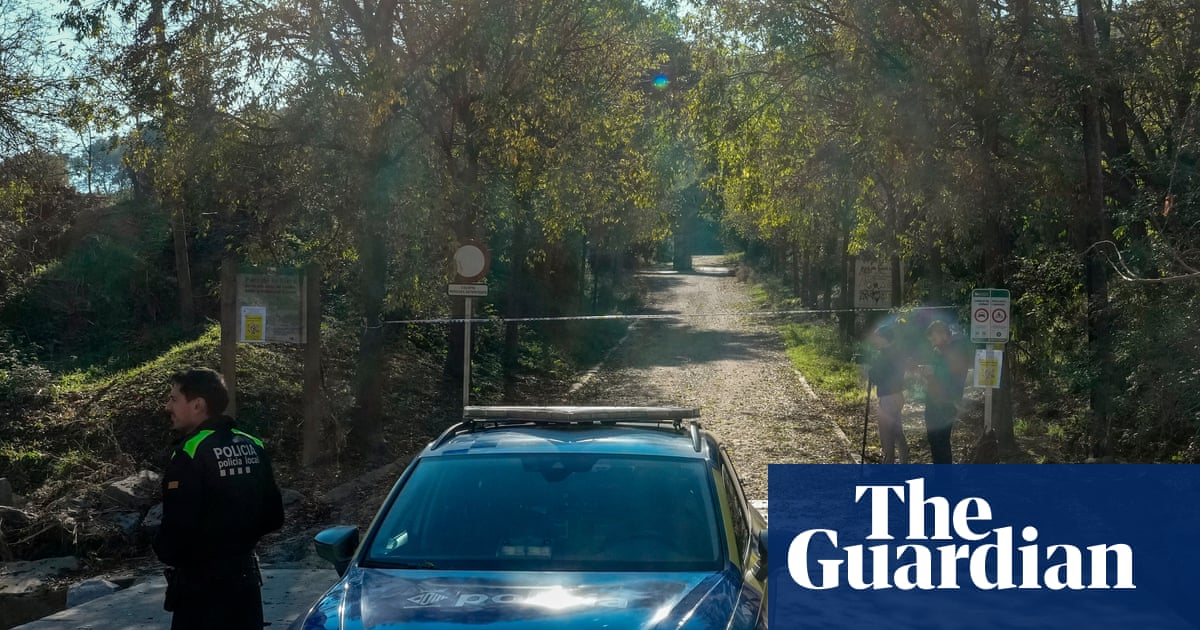I return to Europe from the US with a clear conclusion: American democrats (lowercase d) have 400 days to start saving US democracy. If next autumn’s midterm elections produce a Congress that begins to constrain Donald Trump there will then be a further 700 days to prepare the peaceful transfer of executive power that alone will secure the future of this republic. Operation Save US Democracy, stages 1 and 2.
Hysterical hyperbole? I would love to think so. But during seven weeks in the US this summer, I was shaken every day by the speed and executive brutality of President Trump’s assault on what had seemed settled norms of US democracy and by the desperate weakness of resistance to that assault. There’s a growing body of international evidence to suggest that once a liberal democracy has been eroded, it’s very difficult to restore it. Destruction is so much easier than construction.
That’s why all democrats, irrespective of party or ideology, must hope the Democrats regain control of the House of Representatives in midterm elections on 3 November 2026. Not because of the Democrats’ policies, which are a muddle, or their current leadership, which is a mess, but simply because US democracy needs Congress, the principal check on presidential power envisaged in the US constitution, to start doing its job again. That will not happen so long as the Republicans, dominated and intimidated by Trump, control both houses.
Much has been made of comparisons to other authoritarian power grabs, from Europe in the 1930s to Viktor Orbán’s Hungary, but I’m most struck by the distinctive features of the US case. To name just four: excessive executive power; chronic gerrymandering; endemic violence; and the way a would-be authoritarian can exploit the intense capitalist competition that permeates every area of US life.
The danger of executive overreach has been there from the very beginning. Revolutionary war hero Patrick Henry (“give me liberty or give me death”) voted against the constitution at the Virginia ratifying convention in 1788 precisely because he thought it would give a criminal president the chance “to make one bold push for the American throne.” Throughout the 20th century, presidents of both parties extended the “executive power” that is so ill-defined in article 2 of that constitution. More recently, a conservative-dominated supreme court has given succour to the unitary executive theory developed by rightwing legal theorists, which gives the most expansive reading of presidential power. And now the Trump administration – well prepared, unlike in 2017 – has exploited every inch and wrinkle of existing executive power, as well as simply breaking the law and defying the courts to stop it.
Tom Ginsburg, a leading US comparative constitutionalist, argues that the biggest single flaw of the unreformed US constitution is that it gives state legislatures the power to draw electoral boundaries. The word gerrymandering was coined as early as 1812. In recent times, partisan redistricting has become more extreme as US politics has become more polarised. And then, in 2019, the supreme court declared that it could not correct even the most blatant party-political gerrymandering (only that done on racial lines). So now, at Trump’s direct request, Texas sets out to change constituency boundaries explicitly to win five more seats for the Republicans in the midterms, whereupon California says it will counter-gerrymander to win five more for the Democrats. There’s no longer even a bare pretence of impartiality about the most basic procedure of democracy.
No European society can compare to the US for the ubiquity of violence. Hardly a day passed this summer without the evening news reporting at least one violent crime, including yet another horrific school shooting. The US has more guns than people. France loves its pseudo-revolutionary political theatre, but the US had the 6 January 2021 mob assault on the Capitol. Now the rightwing activist Charlie Kirk has been shot. Before the identity of the killer was known, Elon Musk said “the left is the party of murder” and Trump blamed the hate speech of the “radical left”. It will be a miracle if the US avoids a downward spiral of political violence, as last seen in the 1960s. That in turn could be the pretext for Trump to invoke the 1807 Insurrection Act, bring more military on to US streets and further exploit an alleged state of emergency.
Meanwhile, universities, business leaders, law firms, media platforms and tech supremos have utterly failed to engage in collective action in response. They have either kept their heads down, settled humiliatingly like Columbia University and the law firm Paul, Weiss, or fawned on the president, like Mark Zuckerberg. Why? Because they all follow the logic of fierce free-market competition and fear targeted reprisals. I never imagined I would see fear spread so far and fast in the US.
Add in attempts to disqualify or intimidate voters, plus Trump’s threat to ban mail-in ballots, and there’s a real doubt how far next November’s midterm elections will be fully free and fair. The task for democrats of all parties is to ensure they are, so far as possible. The task for the Democrats (capital D) is to win them in spite of any such obstacles.
The key to that will probably still be bread-and-butter issues. Here, in the economy, lies paradoxical hope. We’re already beginning to see Trump’s tariffs feed through into higher prices. The job numbers are weakening. Trump’s “big beautiful bill” will further increase an already gobsmacking national debt of $37tn (£27tn). Already in the 2024 fiscal year, servicing that debt cost more than the entire $850bn defence budget. But until a debt crisis actually hits, such macro-risks remain remote and abstract to most voters, rather as predictions of diminished GDP growth made little impact in the Brexit referendum debate.
So the big question is whether the negative economic consequences of Trump will be palpable to ordinary voters before the midterms. One astute political observer suggested to me that Trump, flush with revenue from the new tariffs, could do a pre-election cash handout to voters, perhaps presented as compensation for the “temporary difficulties” of the transition to a Maga economy. That would be a classic populist move.
after newsletter promotion
The single most important thing for the Democrats in the next 400 days is therefore to bring those economic costs irresistibly home to voters. Democrats won’t win just by talking about the defence of democracy, important though that is, let alone by engaging in culture wars. They need to follow the advice of former Clinton adviser James Carville and focus relentlessly on kitchen-table issues. In doing so, they will also show that they do actually care about the ordinary working- and middle-class Americans whose support they have lost over the last 30 years.
Then there’s stage 2, the presidential election in 2028. But sufficient unto the day are the challenges thereof. Despite all the serious threats to democracy itself in the US, for now the first rule of democratic politics still applies: just win the next election.
-
Timothy Garton Ash is a historian, political writer and Guardian columnist

.png) 2 months ago
61
2 months ago
61

















































